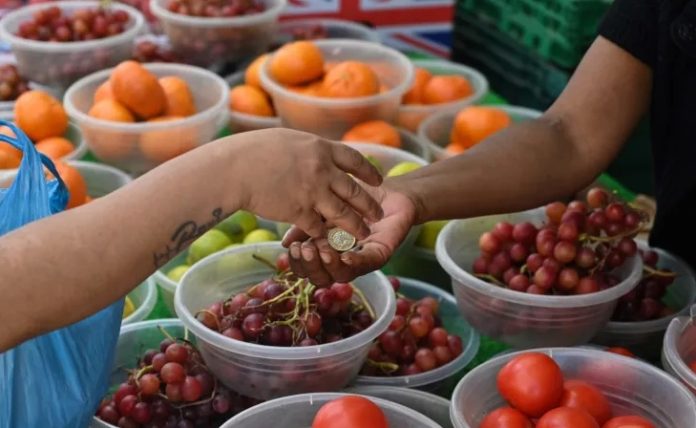British inflation fell more than expected in October as household energy prices fell from a year ago and there was a broader easing of price pressures, bringing relief to the Bank of England and Prime Minister Rishi Sunak, Reuters reports.
Annual consumer price inflation fell to a lower-than-expected 4.6 per cent from 6.7 per cent in September, official data showed. The rise in inflation was the smallest in two years, prompting investors to raise bets on a Bank of England rate cut next year. Finance minister Jeremy Hunt said:
“Now we are beginning to win the battle against inflation we can move to the next part of our economic plan, which is the long-term growth of the British economy.”
It will offer investment incentives to businesses in its updated Budget on 22 November. Bank of England forecasts and consensus from a Reuters poll of economists pointed to an October rate of 4.8 per cent.
The ONS reports that the fall in annual CPI was the biggest since April 1992.
Sterling fell slightly against the US dollar after the data was released, which showed that key inflation indicators closely monitored by the Bank of England also slowed more than expected. The FTSE 100 index rose more than 1 per cent to its highest level in almost a month. The FTSE 250 average index hit a two-month high.
The Bank of England has warned that the “last mile” to bring it down will be more difficult, although inflation has more than halved from its peak of 11.1 per cent reached in October 2022. The central bank predicts inflation will not return to the 2% target until late 2025, but many economists believe it will happen sooner.
With the British economy stagnating, the inflation data reinforced expectations that the Bank of England’s rate hike cycle has ended, while the US Federal Reserve and the European Central Bank also appear to have peaked in interest rate hikes. Julien Lafargue, chief market strategist at Barclays Private Bank, said, predicting no BoE rate changes for a few months:
“The UK economy is still very much facing stagflation and, in our view, the road ahead will likely continue to be bumpy.”
Inflation in the services sector also fell more than the central bank had expected, to 6.6 per cent from 6.9 per cent, while core inflation, which excludes energy and food prices, fell to 5.7 per cent from 6.1 per cent.
The data was rare happy news for Sunak, who has promised to halve price rises this year ahead of an election due in 2024, which opinion polls show his Conservative Party is likely to lose.
